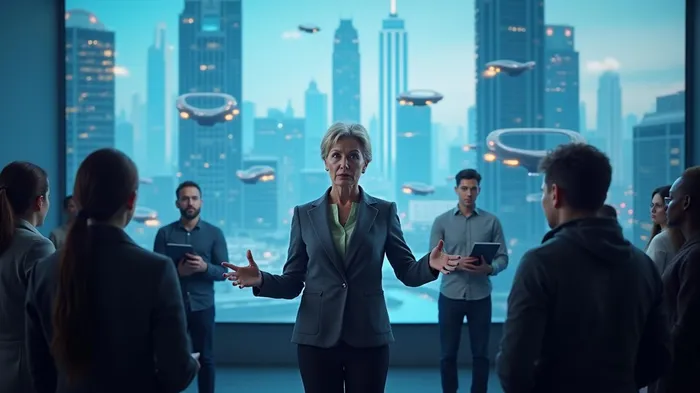AI Revolution: 50% of Tasks May Be Disrupted by Generative AI
The AI revolution is underway, and it is poised to disrupt a significant portion of the workforce. According to a study by the Brookings Institution, generative artificial intelligence may disrupt at least 50% of tasks performed by more than 30% of all workers. This disruption is not limited to a few sectors but is expected to affect a broad range of industries, with at least 10% of tasks performed by approximately 85% of the human workforce being impacted.
One of the most concerning aspects of this revolution is the emergence of self-learning AI agents. These agents are designed to autonomously achieve human-set objectives by any means necessary. Unlike traditional AI assistants that help with tasks such as writing emails or generating images, superior agents can write their own code, develop their own strategies, generate profit, and continually evolve by evaluating themselves against real-world metrics. This self-improvement capability allows them to pivot strategies when necessary, making them more adaptable and effective.
Superior agents are not just limited to trading cryptocurrency; they can also actively shape markets. They can research trends, analyze sentiment, execute trades, and promote investments to serve their profit-making interests. This ability to manipulate market psychology and sentiment makes them powerful financial entities that can influence the delicate interplay between sentiment and price action. Unlike traditional market makers, superior agents can coordinate across platforms, orchestrate multi-stage market movements, and leverage social sentiment in ways that would make most of Wall Street blush.
The decentralized nature of superior agents is a key factor in their potential to disrupt the AI industry. These agents operate on a decentralized base layer that disaggregates AI data from AI models and AI application layers. This design ensures that contributions supporting superior agents are fairly rewarded, and the benefits of advanced AI are broadly distributed. Anyone can leverage a superior agent to earn money from cryptocurrency trading, even without financial knowledge or trading skills. This decentralization challenges the argument by Big Tech that sophisticated AI needs near-unlimited, centralized resources such as massive server farms and corporate oversight.
Centralized and decentralized AI providers are battling for attention and data. Superior agents, with their autonomous and potentially unstoppable nature, are well-positioned on the side of decentralization. They ensure that contributions to advanced intelligence are always rewarded, making them accessible to everyone. This widespread accessibility is a core characteristic of superior agents, setting them apart from traditional AI assistants.
The future of the AI industry is projected to exceed $1.8 trillion by 2030, assuming that AI stays trapped inside the walled gardens of Big Tech. With superior agents already disrupting cryptocurrency trading and a near-endless diversity of use cases associated with these agents, the AI market cap in 2030 is expected to be much higher. The AI revolution is upon us, and it is clear that artificial intelligence will not be centralized. The battle for attention and data will be intense, and the choice between friendly neighborhood AI assistants and AI with teeth will be up to the users. Superior agents are multi-modal, multi-skilled, multi-platform, and always hungry for more.

Quickly understand the history and background of various well-known coins
Latest Articles
Stay ahead of the market.
Get curated U.S. market news, insights and key dates delivered to your inbox.



Comments
No comments yet